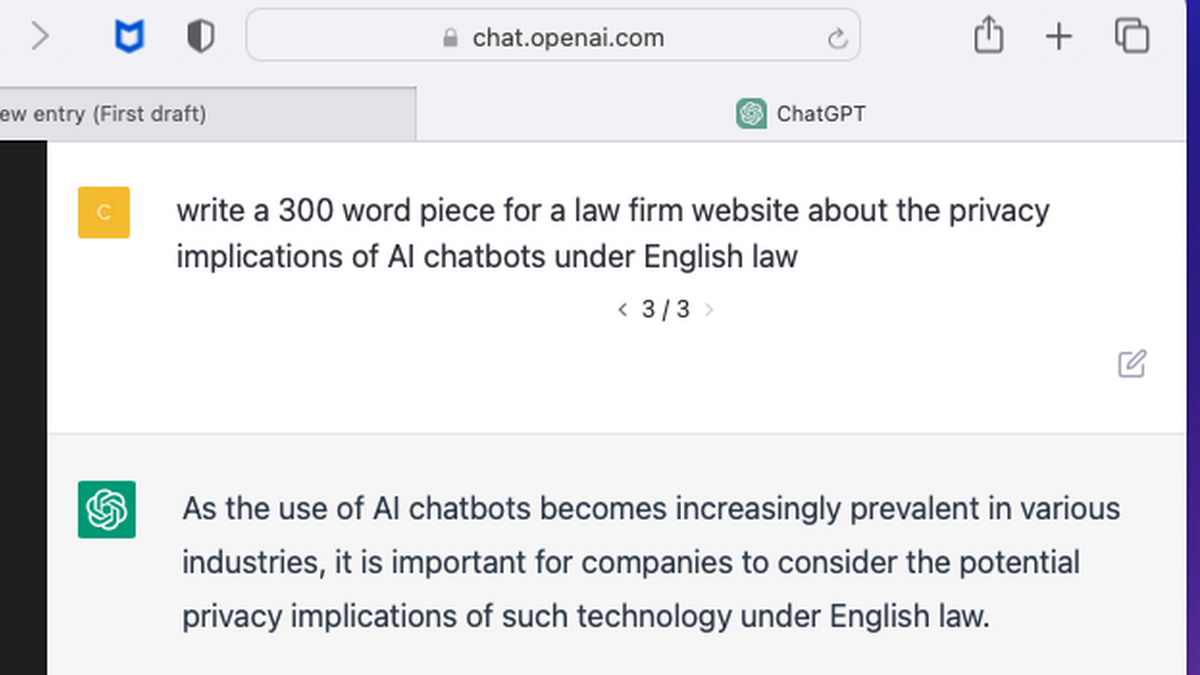What do AI chatbots mean for privacy?
As the use of AI chatbots becomes increasingly prevalent in various industries, it is important for companies to consider the potential privacy implications of such technology under English law.

Under the General Data Protection Regulation (GDPR), personal data is defined as any information relating to an identifiable person, such as a name, address, or online identifier. AI chatbots often collect and process personal data in the course of their interactions with users, making it necessary for companies to ensure that their use of chatbots complies with GDPR requirements.
One key aspect of GDPR compliance is obtaining valid consent from individuals for the processing of their personal data. In the context of AI chatbots, this may involve providing clear and concise information about the type of data that the chatbot will collect, the purposes for which it will be used, and the rights of individuals in relation to their personal data.
Another important consideration is the security of personal data processed by AI chatbots. Under GDPR, companies are required to implement appropriate technical and organisational measures to protect personal data against unauthorised or unlawful processing, and against accidental loss, destruction, or damage. This may involve measures such as encryption, regular security audits, and the implementation of strict access controls.
In addition to GDPR, companies using AI chatbots should also be aware of other relevant laws and regulations, such as the Data Protection Act 2018 and the Privacy and Electronic Communications Regulations 2003. These laws place additional obligations on companies in relation to the processing of personal data, including the requirement to provide individuals with certain information about the use of their personal data, and the right to request access to, and correction of, their personal data.
Overall, the use of AI chatbots presents a range of potential privacy implications, and it is essential for companies to carefully consider these issues in order to ensure compliance with English law. By taking steps to obtain valid consent, protect personal data, and provide necessary information to individuals, companies can help to ensure that their use of AI chatbots is both effective and compliant with the relevant legal requirements.
As you might have guessed, this piece was written by the ChatGPT bot by OpenAI and is not the view of Slateford.